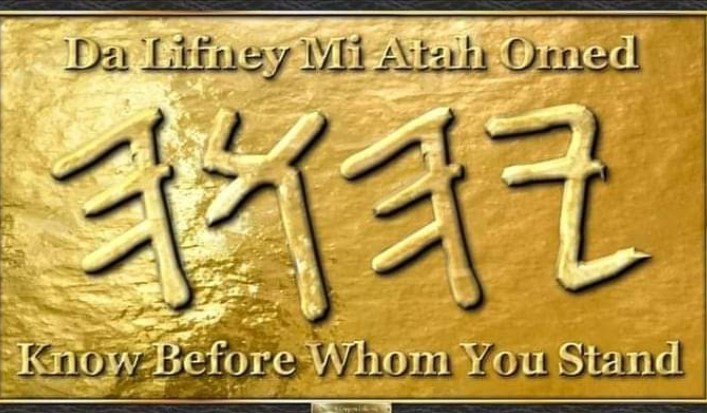Watch
Events
Articles
Market
More
SLEEP DISORDERS
A healing prayer for you to use when you suffer from sleeping disorders
References:
Psalm 119:105 --- 3 John 2 --- Numbers 23:19 --- Psalm 127:2 --- Jeremiah 30:17 --- Psalm 119:153 --- Isaiah 50:7 --- Philippians 4:7 --- Isaiah 26:3 --- Psalm 42:11 --- John 16:23
Healing Promise:
“Beloved, I wish above all things that thou mayest prosper and be in health, even as thy soul prospereth.” (3 John 2)
Healing Prayer:
Mighty heavenly Abba, thank You for the power of Your Word in my life. It is a lamp unto my feet and a light unto my path. In Your Word You assure me that You want me both to prosper and be in health. Thank You for this blessed promise my Abba. I know that You are faithful to me and when You speak something to me, You will make it good. Therefore, I ask You to heal me of this sleep disorder of.................................. Thank You for Your promise to give Your beloved sleep. I claim Your promise as I pray and I ask You to help me have a good sleep at the right times, not too much or too little, but sleep that will take care of my need of rest and give me renewed energy. Restore health to me Abba. Consider my affliction and deliver me as I walk in the truth of Your Word. I know You are helping me and healing me Abba. Therefore, I will not be confounded. Instead, I will set my face like a flint. In so doing, I know that I will not be ashamed. Let Your wonderful peace, which surpasses all understanding, keep my heart and mind through Moshiach Yeshua. How wonderful it is for me to know that You will keep me in perfect peace my Adonai and my YHVH, as I keep my mind stayed on You and trust in You. I claim this promise now as I experience Your healing power in my life. I place all my hope in You Almighty Adonai and YHVH, as I reflect on the fact that You are the health of my countenance and my body and You are my YHVH forever and ever. Thank You for healing me of the sleep disorder. In Yeshua’ Name I pray, amein.



Sabbath Keepers Fellowship and Prison Ministries
Min Hazaqen Torah Study Group on Facebook
Christi Banks
Yochanan Ben Yisrael
14 Va’eira – Day 1
Sh’moth 6:2-13
And Elohim spoke to Mosheh and said to him, “I am YHWH.
“And I appeared to Aḇraham, to Yitsḥaq, and to Ya‛aqoḇ, as Ěl Shaddai. And by My Name, YHWH, was I not known to them?
“And I also established My covenant with them, to give them the land of Kena‛an, the land of their sojournings, in which they have sojourned.
“And I have also heard the groaning of the children of Yisra’ěl whom the Mitsrites are enslaving, and I have remembered My covenant.
“Say, therefore, to the children of Yisra’ěl, ‘I am YHWH, and I shall bring you out from under the burdens of the Mitsrites, and shall deliver you from their enslaving, and shall redeem you with an outstretched arm, and with great judgments, and shall take you as My people, and I shall be your Elohim. And you shall know that I am YHWH your Elohim who is bringing you out from under the burdens of the Mitsrites.
‘And I shall bring you into the land which I swore to give to Aḇraham, to Yitsḥaq, and to Ya‛aqoḇ, to give it to you as an inheritance. I am YHWH.’”
And Mosheh spoke thus to the children of Yisra’ěl, but they did not listen to Mosheh, because of shortness of spirit, and from hard slavery.
And YHWH spoke to Mosheh, saying, “Go in, speak to Pharaoh king of Mitsrayim, to let the children of Yisra’ěl go out of his land.”
And Mosheh spoke before YHWH, saying, “The children of Yisra’ěl have not listened to me, and why would Pharaoh listen to me, for I am of uncircumcised lips?”
And YHWH spoke to Mosheh and to Aharon, and gave them a command for the children of Yisra’ěl and for Pharaoh, king of Mitsrayim, to bring the children of Yisra’ěl out of the land of Mitsrayim.




Sabbath Keepers Fellowship and Prison Ministries
Min Hazaqen Torah Study Group on Facebook
Christi Banks
Yochanan Ben Yisrael
Tehillah 24 – Day 1 (Yom Rishon)
The earth belongs to YHWH, And all that fills it – The world and those who dwell in it.
For He has founded it upon the seas, And upon the waters He does establish it.
Who does go up into the mountain of YHWH? And who does stand in His set-apart place?
He who has innocent hands and a clean heart, Who did not bring his life to naught, And did not swear deceivingly.
He receives a blessing from YHWH, And righteousness from the Elohim of his deliverance.
This is the generation of those who seek Him; Ya‛aqoḇ, who seek Your face. Selah.
Lift up your heads, O you gates! And be lifted up, you everlasting doors! And let Melek Hakavod come in.
Who is this Melek Hakavod? YHWH strong and mighty, YHWH mighty in battle.
Lift up your heads, O you gates! Even lift up, you everlasting doors! And let Melek Hakavod come in.
Who is this Melek Hakavod? YHWH of hosts, He is Melek Hakavod! Selah.




Sabbath Keepers Fellowship & Prison Ministry (Facebook)
Min Hazaqen Torah Study Group (Facebook)
Christi Banks
Yochanan Ben Yisrael
13 Sh’moth – Haftarah
Yeshayahu 27:6-28:13, 29:22-23
Those who come He causes to take root in Ya‛aqoḇ, Yisra’ěl shall blossom and bud. And they shall fill the face of the world with fruit.
Has He smitten him as he struck the ones who were striking him? Or as a killer – was he killed as he was killing?
In measure, by sending her away, You contended with her. He shall take away by His rough wind in the day of the east wind.
Therefore by this the crookedness of Ya‛aqoḇ is covered. And this is all the fruit of taking away his sin: when he makes all the stones of the altar like chalkstones that are beaten to dust – Ashěrim and sun-pillars rise no more.
For the city of defense is lonely, a home forsaken and left like a wilderness – there the calf feeds, and there it lies down, and shall consume its branches.
When its twigs are dry, they are broken off, women come and set them on fire. For it is a people of no understanding, therefore He who made them has no compassion on them, and He who formed them shows them no favor.
And in that day it shall be that YHWH threshes, from the channel of the River to the wadi of Mitsrayim. And you shall be gathered one by one, O children of Yisra’ěl.
And in that day it shall be that a great shophar is blown, and those who were perishing in the land of Ashshur and the outcasts in the land of Mitsrayim shall come, and shall worship YHWH on the set-apart mountain, in Yerushalayim.
Woe to the proud crown of the drunkards of Ephrayim, and to the fading flower of its splendid comeliness that is on the head of the fertile valley, to those who are overcome with wine!
See, YHWH has one who is strong and potent, like a downpour of hail and a destroying storm, like a flood of mighty waters overflowing, who casts down to the earth with the hand.
The proud crown of the drunkards of Ephrayim, is trampled under foot; and the fading flower of its splendid comeliness that is on the head of the fertile valley, like the first fruit before the summer, which, when one sees it, he eats it up while it is still in his hand.
In that day YHWH of hosts is for a crown of splendor and a head-dress of comeliness to the remnant of His people, and a spirit of judgment to him who sits in judgment, and strength to those who turn back the battle at the gate.
And these too have gone astray through wine, and through strong drink wandered about. Kohen and prophet have gone astray through strong drink, they are swallowed up by wine, they wander about through strong drink, they go astray in vision, they stumble in judgment.
For all tables shall be covered with vomit, no place without filth.
Whom would He teach knowledge? And whom would He make to understand the message? Those weaned from milk, those taken from the breasts!
For it is: command upon command, command upon command, line upon line, line upon line, here a little, there a little.
For with a jabbering lip and a foreign tongue He speaks to this people, to whom He said, “This is the rest, give rest to the weary,” and, “This is the refreshing.” But they would not hear.
But the Word of YHWH was to them, “Command upon command, command upon command, line upon line, line upon line, here a little, there a little,” so that they go and shall stumble backward, and be broken and snared and taken captive.
Therefore thus said YHWH, who ransomed Aḇraham, concerning the house of Ya‛aqoḇ, “Ya‛aqoḇ is no longer put to shame, no longer does his face grow pale.
“For when he sees his children, the work of My hands, in his midst, they shall set apart My Name, and set apart the Set-apart One of Ya‛aqoḇ, and fear the Elohim of Yisra’ěl.
Yermayahu 1:1-2:3
The words of Yirmeyahu the son of Ḥilqiyahu, of the kohenim who were in Anathoth in the land of Binyamin, to whom the word of YHWH came in the days of Yoshiyahu son of Amon, king of Yehuḏah, in the thirteenth year of his kingdom.
And it came in the days of Yehoyaqim, son of Yoshiyahu, king of Yehuḏah, until the end of the eleventh year of Tsiḏqiyahu, son of Yoshiyahu, king of Yehuḏah, until the exile of Yerushalayim in the fifth new moon.
Now the word of YHWH came to me, saying, “Before I formed you in the belly I knew you, and before you came out of the womb I did set you apart – I appointed you a prophet to nations.”
And said I, “Ah, Master YHWH! See, I do not know how to speak, for I am a youth.”
And YHWH said to me, “Do not say, ‘I am a youth,’ but go to all to whom I send you, and speak whatever I command you.
“Do not fear their faces, for I am with you to deliver you,” declares YHWH.
Then YHWH put forth His hand and touched my mouth, and YHWH said to me, “See, I have put My words in your mouth.
“See, I have this day set you over the nations and over the rules, to root out and to pull down, to destroy and to overthrow, to build and to plant.”
And the word of YHWH came to me, saying, “What do you see, Yirmeyahu?” And I said, “I see a branch of an almond tree.”
And YHWH said to me, “You have seen well, for I am watching over My word to do it.”
And the word of YHWH came to me a second time, saying, “What do you see?” And I said, “I see a boiling pot, and it is facing away from the north.”
And YHWH said to me, “Out of the north evil is set loose on all the inhabitants of the land.
“For look, I am calling all the clans of the rules of the north,” declares YHWH. “And they shall come and each one set his throne at the entrance of the gates of Yerushalayim, against all its walls all around, and against all the cities of Yehuḏah.
“And I shall pronounce My judgments against them concerning all their evil, because they have forsaken Me, burned incense to other mighty ones, and bowed themselves to the works of their own hands.
“Now, gird up your loins and arise, and speak to them all that I command you. Do not break down before their faces, lest I break you before them.
“For look, I have made you this day a walled city and an iron column, and bronze walls against all the land, against the kings of Yehuḏah, against her heads, against her kohenim, and against the people of the land.
“And they shall fight against you, but not prevail against you. For I am with you,” declares YHWH, “to deliver you.”
And the word of YHWH came to me, saying, “Go, and you shall cry in the hearing of Yerushalayim, saying, ‘Thus said YHWH, “I remember you, the mercy of your youth, the love of your bridehood, when you went after Me in the wilderness, in a land that was not sown.
“Yisra’ěl was set-apart to YHWH, the first-fruits of His increase. All who ate of it became guilty – evil came upon them,” declares YHWH.’”




Sabbath Keepers Fellowship & Prison Ministry
Min Hazaqen Torah Study Group
Christi Banks
Yochanan Ben Yisrael
13 Sh’moth – Day 7
Sh’moth 5:1-6:1
And afterwards Mosheh and Aharon went in and said to Pharaoh, “Thus said YHWH Elohim of Yisra’ěl, ‘Let My people go, so that they celebrate a festival to Me in the wilderness.’”
And Pharaoh said, “Who is YHWH, that I should obey His voice to let Yisra’ěl go? I do not know YHWH, nor am I going to let Yisra’ěl go.”
And they said, “The Elohim of the Hebrews has met with us. Please, let us go three days’ journey into the wilderness and slaughter to YHWH our Elohim, lest He fall upon us with pestilence or with the sword.”
But the king of Mitsrayim said to them, “Mosheh and Aharon, why do you take the people from their work? Get back to your burdens.”
And Pharaoh said, “See, the people of the land are many now, and you make them cease from their burdens!”
And the same day Pharaoh commanded the slave-drivers of the people and their foremen, saying, “You are no longer to give the people straw to make bricks as before. Let them go and gather straw for themselves.
“And lay on them the required amount of bricks which they made before, do not diminish it. For they are idle, that is why they cry out, saying, ‘Let us go and slaughter to our Elohim.’
“Let more work be laid on the men, so that they labor in it, and not pay attention to words of falsehood.”
And the slave-drivers of the people and their foremen went out and spoke to the people, saying, “Thus said Pharaoh, ‘I do not give you straw.
‘Go, take straw for yourselves, where ever you find it, for your work shall not be diminished.’”
And the people were scattered in all the land of Mitsrayim – to gather stubble for straw.
And the slave-drivers were hurrying them on, saying, “Fulfill your actions, your daily matters, as when there was straw.”
Also the foremen of the children of Yisra’ěl, whom Pharaoh’s slave-drivers had set over them, were struck and were asked, “Why have you not fulfilled your law in making bricks both yesterday and today, as before?”
And the foremen of the children of Yisra’ěl came and cried out to Pharaoh, saying, “Why do you treat your servants this way?
“There is no straw given to your servants, and they say to us, ‘Make bricks!’ And see, your servants are struck, but your own people are at fault.”
But he said, “You are idle! You are idle! That is why you say, ‘Let us go and slaughter to YHWH.’
“So now go, work. And straw is not given to you, but deliver the amount of bricks.”
And the foremen of the children of Yisra’ěl saw that they were in trouble after it was said, “You are not to diminish your daily amount of bricks.”
And when they came out from Pharaoh, they met Mosheh and Aharon who stood there to meet them.
And they said to them, “Let YHWH look on you and judge, because you have made us loathsome in the eyes of Pharaoh and in the eyes of his servants, to give a sword in their hand to kill us.”
And Mosheh returned to YHWH and said, “YHWH, why have You done evil to this people? Why did You send me?
“For ever since I came to Pharaoh to speak in Your Name, he has done evil to this people. And You have not delivered Your people at all.”
And YHWH said to Mosheh, “Now see what I do to Pharaoh, for with a strong hand he is going to let them go, and with a strong hand he is going to drive them out of his land.”




Sabbath Keepers Fellowship & Prison Ministry
Min Hazaqen Torah Study Group
Christi Banks
Yochanan Ben Yisrael
Tehillah 92 – Day 7 (ShabbatH)
It is excellent to give thanks to YHWH, And to sing praises to Your Name, O Most High; To declare Your mercy in the morning, And Your trustworthiness each night, On ten strings, and on the harp, To the sounding chords of the lyre.
For You have made me rejoice with Your work, O YHWH, I shout for joy at the works of Your hands.
O YHWH, how great are Your works! Your thoughts are very deep!
A senseless man does not know, And a fool does not understand this.
When the wrong spring up like grass, And all the workers of wickedness blossom, It is for them to be destroyed forever.
But You, YHWH, are on high forever.
For look, Your enemies, O YHWH, For look, Your enemies do perish; All the workers of wickedness are scattered.
But You lift up my horn like a wild ox; I have been anointed with fresh oil.
And my eye looks upon my enemies; My ears hear the evil-doers Who rise up against me.
The righteous one flourishes like a palm tree, He grows like a cedar in Leḇanon.
Those who are planted in the House of YHWH Flourish in the courts of our Elohim.
They still bear fruit in old age; They are fresh and green, To declare that YHWH is straight, My rock, and in Him is no unrighteousness.




Sabbath Keepers Fellowship & Prison Ministry
Ovadyah Ben Yisrael
From this week's Torah portion:
Pharaoh didn't. Do you?
“Who has gone up to the heavens and come down? Who has gathered the wind in His fists? Who has bound the waters in a garment? Who established all the ends of the earth? What is His name, And what is His son’s name, If you know it?”




Sabbath Keepers Fellowship & Prison Ministry
Ovadyah Ben Yisrael
From this week's Torah portion:
Pharaoh didn't. Do you?
“Who has gone up to the heavens and come down? Who has gathered the wind in His fists? Who has bound the waters in a garment? Who established all the ends of the earth? What is His name, And what is His son’s name, If you know it?”



